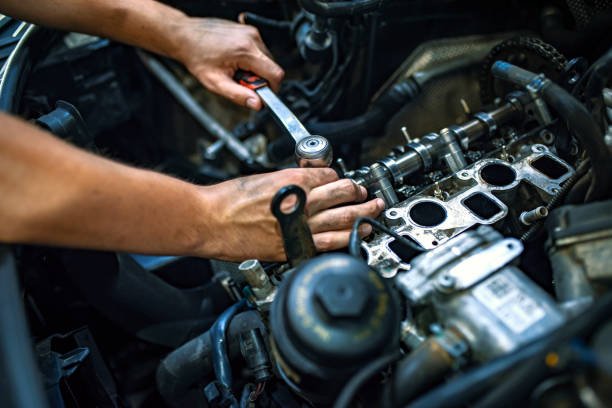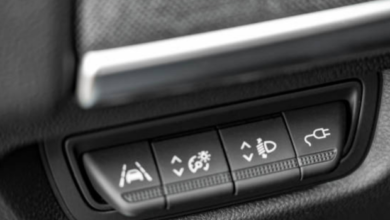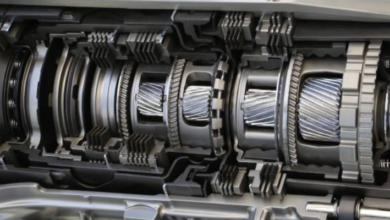Signs of Transmission Slipping

What is Transmission Slipping?
The transmission is an integral component of your motor vehicle. The slightest problem with the transmitting system will drastically impact your vehicle’s performance. If you ever stumble upon troubles with your gears or have the feeling that something’s a bit off, there’s a good chance that your transmission might be slipping as the transmission is in charge of boats, operating your gears and, therefore, results in the car running. A transmission slip may act like an unimportant issue, however, the same problem may result into something more serious than that which might harm your vehicle. There are 5 common signs of transmission slipping which are discussed in detail below. There are also certain causes of transmission slipping which you need to know.
Signs of Transmission Slipping
1. Weird Noises From Car:
As soon as a suspicious noise comes out from a car while driving (for instance, a weird noise swirling that literally means an issue in the transmission), that odd sound might herald the arrival of the transmission slipping issues. Gear slippage occurs when one of the gears is not rounded completely, thus breaking the smooth ride from engine to wheels. Disruptions in such electronic components can cause greater friction and quicker wear to other transmission parts which will manifest as whining or crunching noises. Furthermore, due to the failing torque to this connection, the tranmission gives off sounds that it is heavily exerting itself, and the driver hears the signal of possible flaws. Taking care of these grains of noise immediately is the most important, for prolonged transmission slipping can potentially cause more harm and lead to the vehicle not working properly and even un-intentionally.
2. Difficulty in Gear Changing:
If you keep having trouble activating the gears, especially in a manual model car, then it is a clear indicative of impending gearbox slipping problems. The transmissions of a vehicle display their health and trouble areas when there is not a perfect gear engagement. These problems fluctuate from the faulty parts of the clutch this involves the worn out clutch components such as the clutch disc or pressure plate to an inadequate amount of transmission fluid which hinders the transmission hydraulics, which are responsible for gear shifting. In this regard, besides the damaged synchronizers or linkage problems, the car’s shifting mechanism may also be responsible for the inconvenience in shifting the gears. Displaying urgent care on maintenance and repair is necessary step in order not to face more frequent transmission failures.
3. Car Accelerating Problem:
Alongwith many signs of transmission slipping, one of the major issues, such as the one prolonging acceleration, is a transmission problem. That causes problems with engaging the gears, leads to a loss of power from the engine to the wheels, and the car is not stable during acceleration. Such imperfection can be expressed through multiple manifestations, like higher RPM of the engine without a properly averaged vehicle speed, delayed or conflicted shifting, and unnatural flapping of the equipment.
In addition to fuel system problems, spark plugs, and distorted or corroded fuel injectors, other reasons for poor acceleration might be engine-related issues like a clogged air filter, a malfunctioning fuel system or an ignition system that is out of tune. Also doing the rounds are mechanical issues such as a worn-out clutch (on the side of manual transmissions) or a slipping torque converter It obviously proves crucial to identify the exact reason behind the acceleration issue in order to overcome it. This helps to maintain safe and smooth driving. Being a professional mechanic or automotive technician the right approach is to pull aside and have a complete check to identify and fix the root cause of the problem.
4. Car Going Neutral:
A problem of loss of power in the process of motion of the vehicle when an unexpected shift into neutral gear is particularly important and should be fixed urgently. Less power or no power to the transmission system is usually a symptom of a transmission system issue, which could result into dire consequences like the loss of power and control over the vehicle at hand. Several factors might be the cause of a failing clutch. They include low fluid levels of the transmission, mess up of the torque converter, worn-out bands or clutches or defective electronic control systems. Whether driver negligence or inexcusability, driving in neutral increases road safety dangers because the driver will be unable to speed up or take control of the speeding of vehicle. In case of a sudden transition into neutral driving mode take prompt actions and get yourself stopped as soon as possible as qualified mechanic is needed to define the transmission problem.
5. Weird Smell:
Weird smells emanating from a car can be indicative of various issues, including potential transmission problems. If you notice unusual odors, such as a burning smell resembling burnt toast or a sweet, syrupy scent, it could suggest transmission fluid overheating or leaking onto hot engine components. Overheated transmission fluid can emit a distinctive odor due to breakdown or contamination, signaling potential transmission issues like slipping or excessive friction within the transmission system.
Additionally, other vehicle components or systems could also contribute to weird smells. For example, a musty or moldy odor could indicate moisture buildup in the HVAC system, while a rotten egg smell might suggest a catalytic converter problem. It’s essential to address any unusual smells promptly, as they could signify underlying issues that require attention to ensure safe and reliable vehicle operation. Consulting a qualified mechanic or automotive technician for a thorough inspection is advisable to diagnose and resolve the cause of the strange odor.




